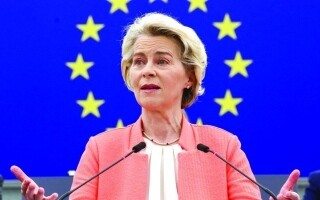
The situation in the global arena pretends significant changes, and experts focus on the dynamics of interactions between the USA, China, and the European Union. A scholar from Tsinghua University, Shi Yan, noted: "We believe that under the second term of Trump's presidency, there is theoretically a chance for Beijing and Brussels to return to parallel cooperation."
However, the USA continues to remain an important factor in this situation. At the same time, European officials continue to turn to Washington in an effort to strengthen their relations with Trump and his team. For instance, last Wednesday, European Commissioner for Trade and Economic Security Maroš Šefčovič met with the US Secretary of Commerce, Wilbur Ross, in Washington.
After that, the decisive step was made in the Biden administration over the course of four years to create a united front against China, Trump's second presidency fundamentally changed this course.
In the backdrop of Trump's destructive policy regarding the deterioration of relations with its European allies, a rare opportunity opens up for China to create a united front with Europe. At the recent security conference in Munich, the Chinese Foreign Minister Wang Yi held a series of meetings with European leaders, including German Chancellor Olaf Scholz, who stated in his address: "China has always seen Europe as an important plus in the distributed world... China is ready to cooperate with the European side for deepening strategic dialogue and mutually beneficial cooperation."
Professor of International Relations at the University of State Administration and Social Sciences Shi Yi noted: "The escalation of tensions and disruptions between the USA and the European Union gives Beijing a clear opportunity for rapprochement with the EU, as well as with many European countries that earlier had no affiliation with Chinese policies toward Russia."
Meanwhile, the EU and China have faced a common challenge in response to Trump's introduction of tariffs on Chinese goods and on aluminum and steel from all countries, including European allies, and also in anticipation of their increased tariffs. Considering the increased economic burden on the EU due to tariffs and an increase in military expenditures, China may become a more important economic partner for Europe.
Professor of the Academy of Regional and Global Management of Foreign Affairs in Beijing Kui Xun Ziyuan believes that "some large economies within the EU, particularly Germany or some other economies, are trying to establish more balanced relations between China and the USA."
With Trump's support easing military spending of EU countries to 5%, there are also hints that American support may weaken, and European leaders may be able to accept proposals that they received from China.
Likewise, the EU and China are experiencing a common challenge, uniting them in the effort to deal with artificially created tariffs established by Trump concerning China, as well as with the upcoming increases in fees, preparing for application.













